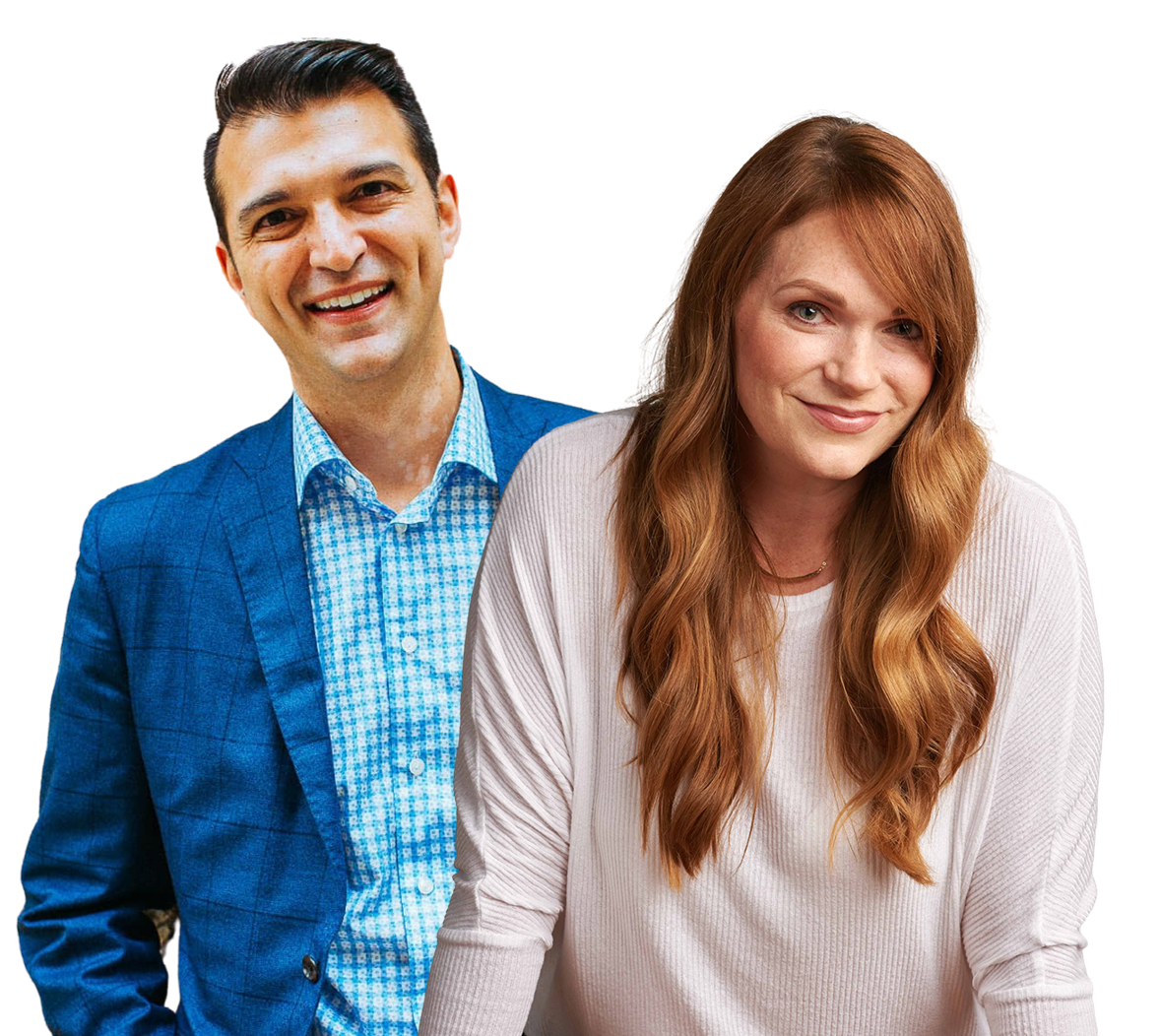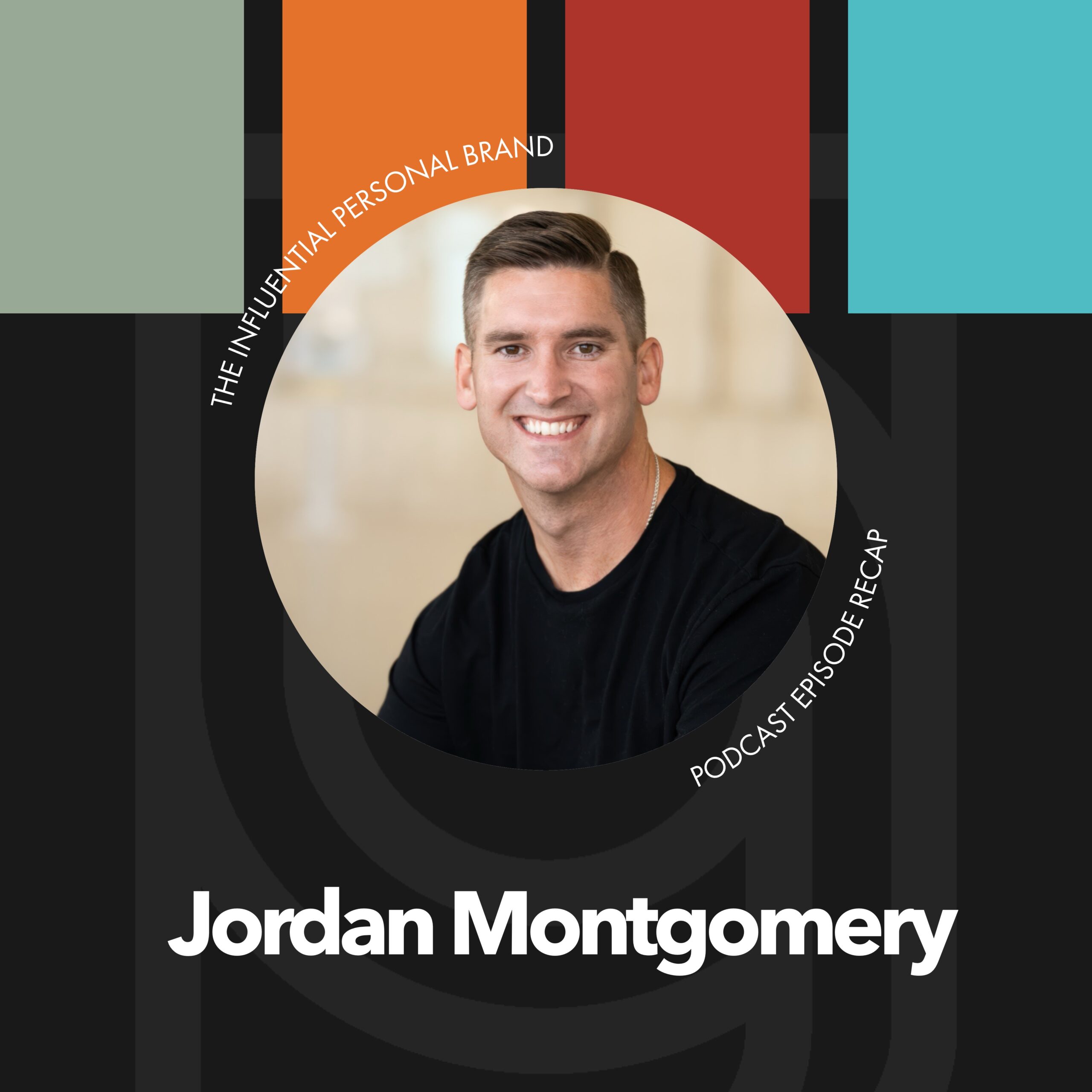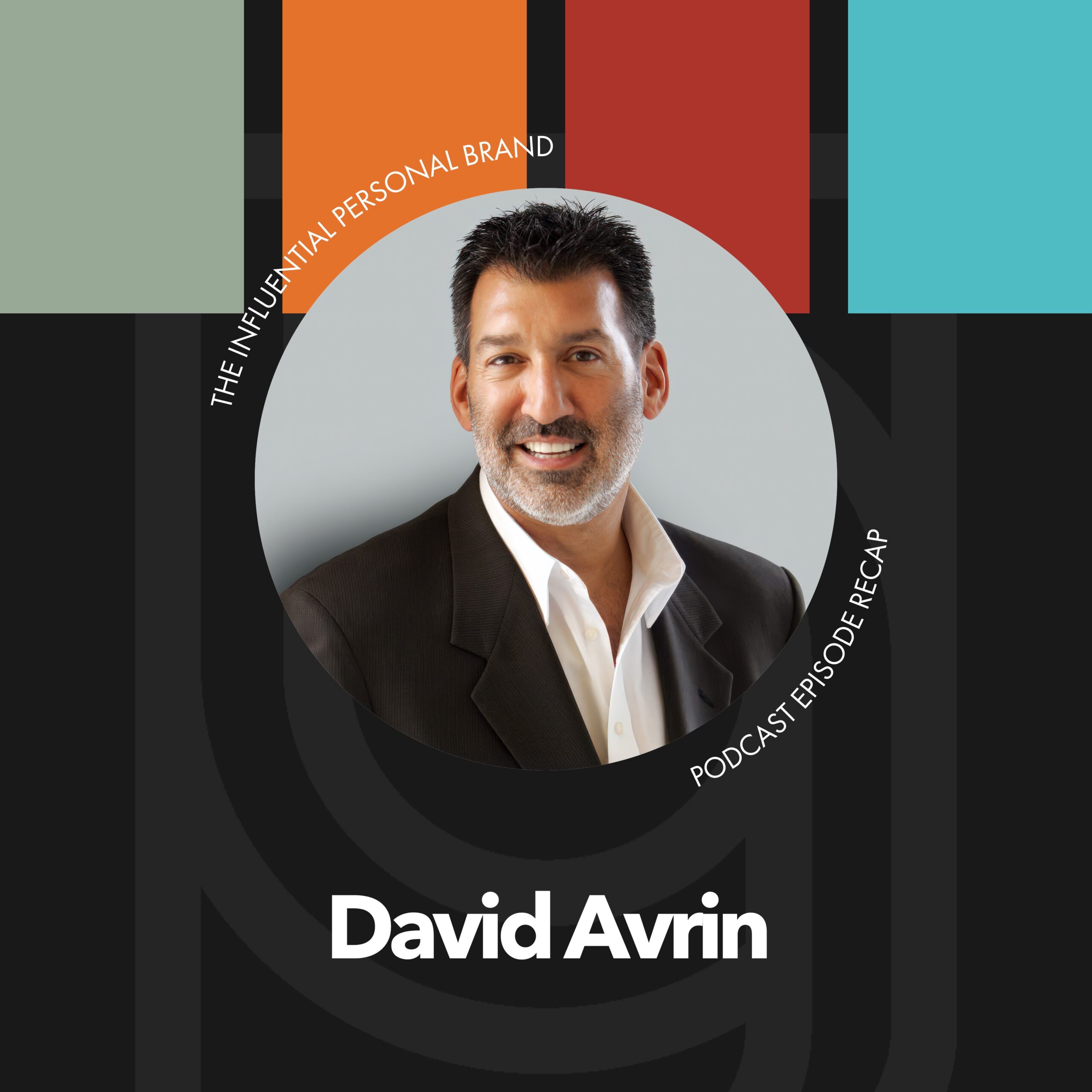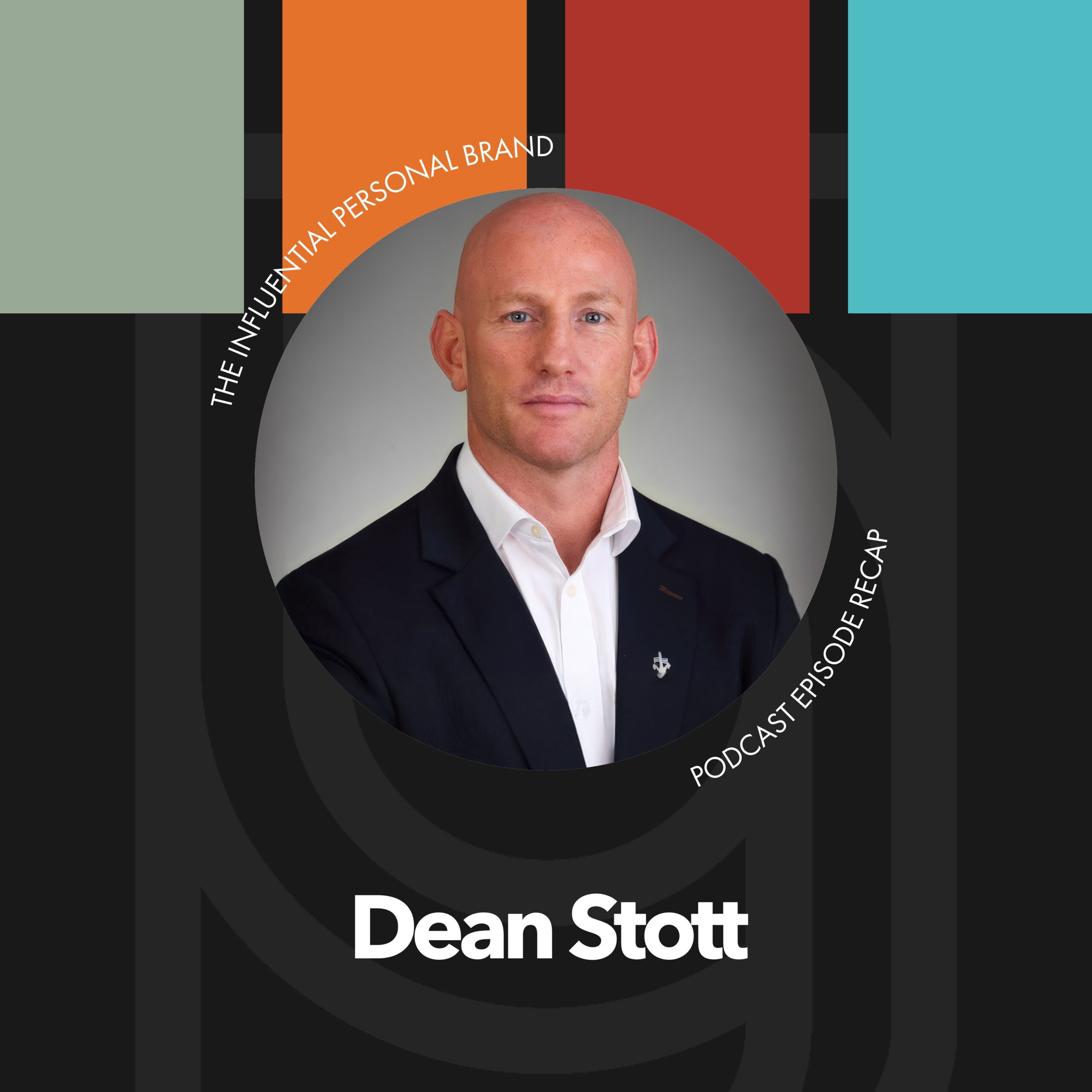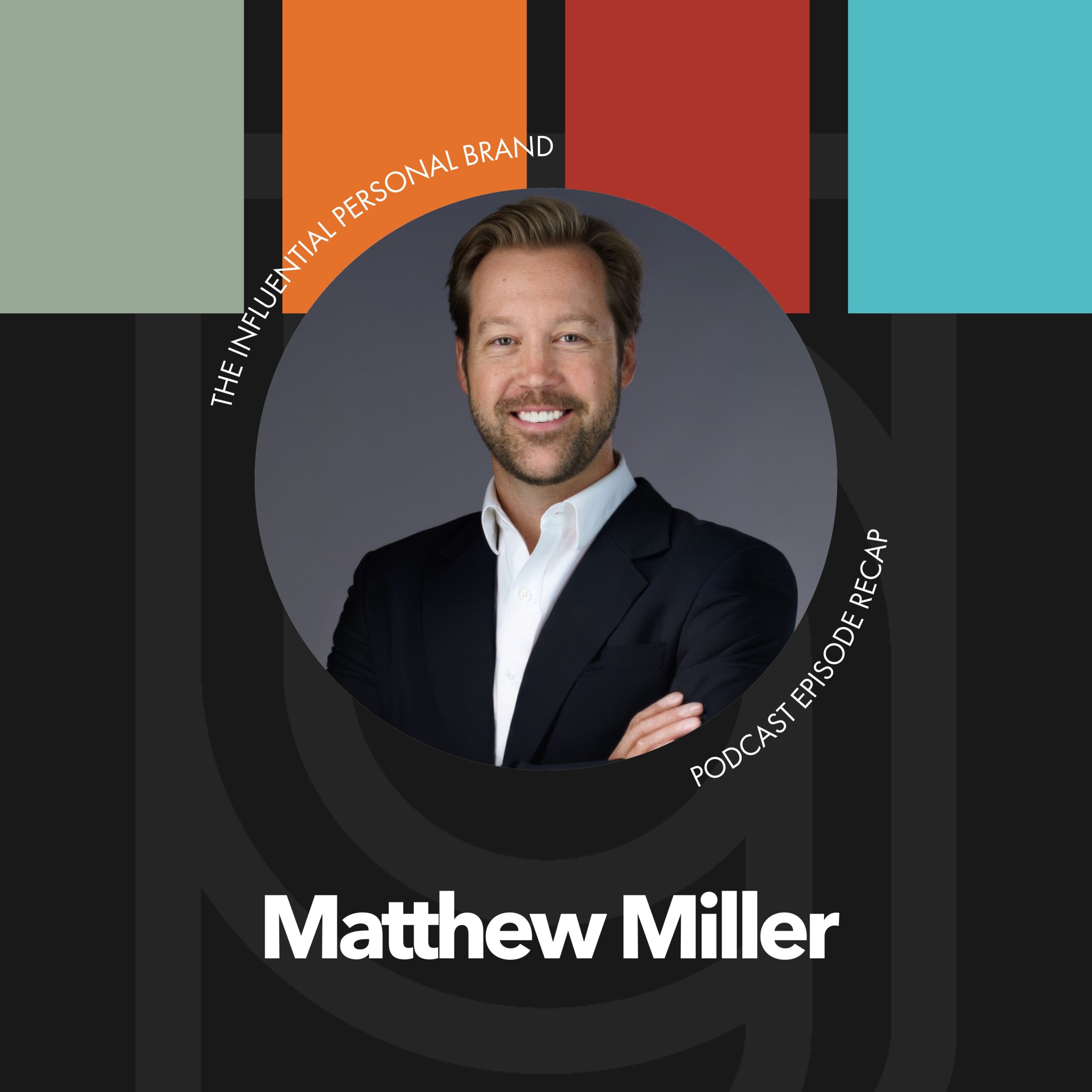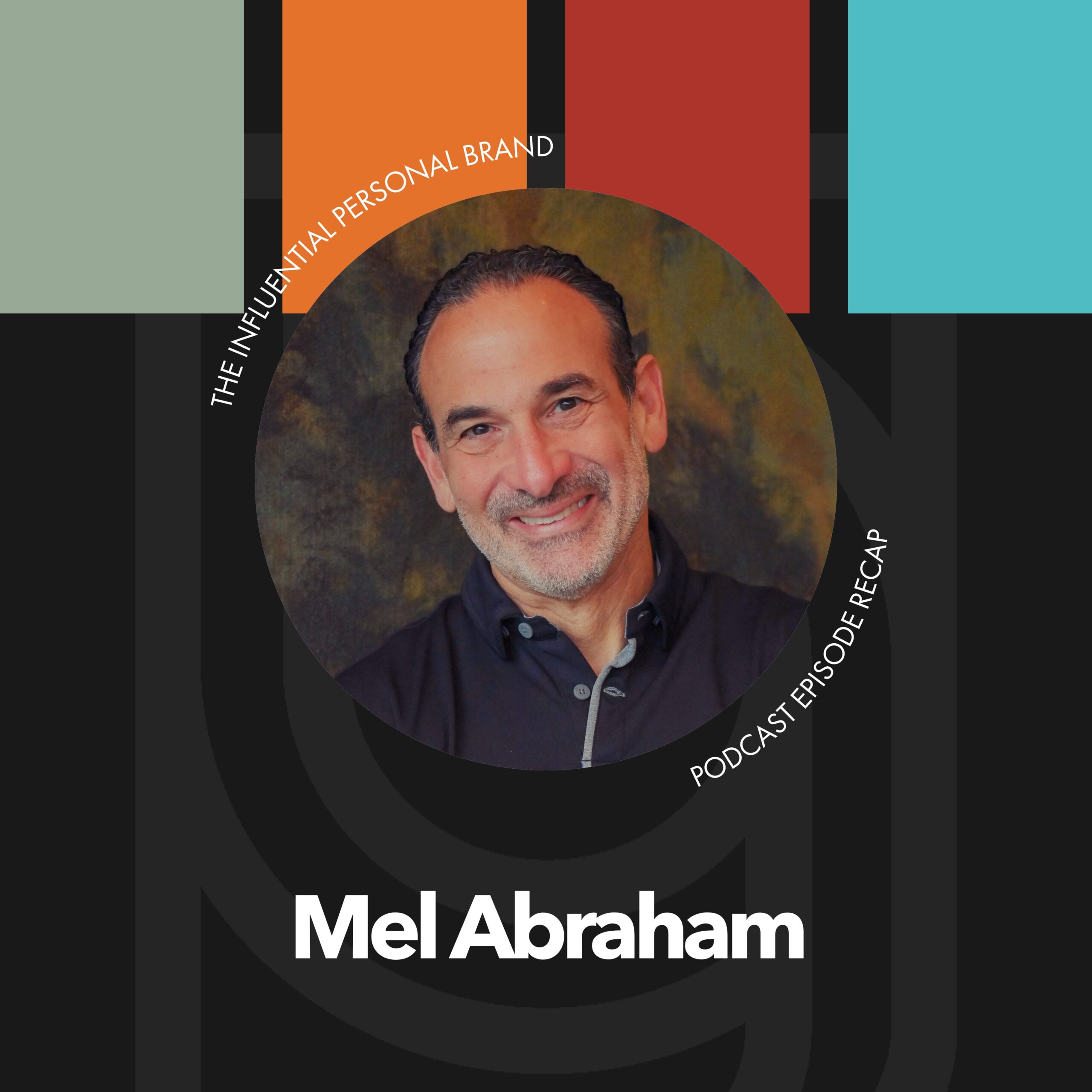RV (00:02):
Such an honor and thrill to get to talk to Peter Shehan about a concept that he originated and we adapted and then a memorialized in his name called Shehan wall and man, Peter is just a genius and he’s, he’s been someone who’s been an important mentor for me and just what a great, what a great moment to get, to sit down with him and just, and just have this conversation. Of course, I’m breaking down the recap of that interview here and talking about Shehan on that, if you haven’t listened to the interview yet again, or if, if you haven’t heard us talk about this, this is one of the, one of the, the very first frameworks that we introduce to people. Just even as we’re talking about personal branding, like before we even talk about brand builders group, which is there’s, you know, this simple idea that there’s two groups of people, world, like in any industry in any vertical, there are the unknown.
RV (01:07):
And then there are the known, and there there’s this huge invisible wall between the two where those who are relatively unknown are trying to break through and become known. And what most of us do is we throw a lot of stuff at the wall and we look at the people who are on the other side of the wall and all the stuff they’re doing go, oh, I wanna do all of those things. Right. And a lot of those people, you know, I can think of the rock because he’s, he’s a rapper and he is an actor. And he you know, obviously like now he has a tequila line and he is doing all of these, all of these different, these different things. And you go, gosh, I wanna do all these things. But the problem is when you do too many things at once you bounce off the wall when you have diluted focus, you get diluted results.
RV (01:58):
If you have diluted focus, you get diluted results. It’s that simple. And most of us, most early personal brands try to emulate these, these very experienced, well known, popular personal brands. And don’t realize that these people have large teams and large budgets. And, and, and in some cases, you know, millions and millions of dollars in, in terms of sponsorships and, and these huge platforms behind them, and you can’t break through the wall by trying to be all things to all people, you know, especially, and not in all the places. And so the way to break through the wall is to become known for one thing. And this was a concept, you know, that was originally inspired by Peter, is this, this idea that if you could become, if you ask yourself, what’s the one thing in the world I could be known for and you break through on that, then once you’re on the other exci, once you’re on the other side of the wall, then you can expand into other things.
RV (02:54):
But until you break through the wall, you are, you’re bouncing off the wall, you’re creating noise. You’re part of the noise you’re consumed by the, the noise. There is just this like indelible difference of, of who you are versus everybody else. And so that’s the, that is, I guess my interpretation, as I remember it you know, it was interesting to hear Peter say that it had been years and years and years since he had even really like, thought about that in, in terms of like that concept, especially like specifically in its application to personal brands. I, I think you said if I remember, right, like the last time I talked about it, you know, in the, in the context of personal branding was at the meeting that I heard in that, which is like years ago, but, but still powerful. And, and so that’s what we’re talking about here.
RV (03:41):
And, and I wanna, I wanna couple this concept as we move into the, the recap of like my takeaways, you know, now kind of years later getting a chance to sit down with Peter and have this conversation. Again, I wanna couple this with another concept that if you’ve ever heard me or AJ on podcast, if you’ve been one of our clients, or if you have followed this, our podcast here that we talk about lot, which is from another mentor, which is a, another this is a quote that was not ours. This is from Larry Wingett. And Larry said, the goal is to find your uniqueness and exploit it in the service, us of others, find your uniqueness and exploit it in the service of others. And oftentimes we couple these concepts together when we teach them one, just cuz they’re, they were important moments in like the timeline of our personal brand and like me specifically like my personal history of, but, but they also work together of this idea, you know, Peter and Han’s wall, of course he didn’t name it, that we named it that as we, you know, applied it specifically to like personal brands and the narrow focus of what we do at brand builders group, but we named it after him cuz it’s concept inspired by him.
RV (04:57):
But visually he shows, you know, this kind of trying goal coming to a point right at the wall, which hits the wall in this very narrow way versus this kind of like you know, more diluted way of, of just throwing a lot of stuff at the wall. Well, couple that with Larry wing it’s concept of finding your uniqueness is going, what is that thing? How you know, or your, your uniqueness is that point, we would refer to your uniqueness as the point at which you can break through the wall. It is doing the thing that only you can do finding the thing that nobody else can quite do, just like you can do and owning that and dominating that. And that really, really being the magic. And so I think one of the reasons when we started brand builders group, I, oh I think one of our goals was to go, how do you do that?
RV (05:57):
How do you find your uniqueness? What, how does one person discover that? And that became our brand DNA, which is our flagship. You know, we’ve got, we have 14 different events or courses. And that is our, our flagship curriculum. I guess, you know, we call ’em topics internally that make up, we’ve got 14 different topics that make up our curriculum. And that became our sort of first one and flagship was helping people identify their uniqueness and creating a process to help them discover what is this one point that you can own and you can break through and it, it starts with clarity, right? So first of all, you, you’ve got to get, you have to get clear. And then once you have clarity, then it’s consistency. And so you say over and over and over and over again. And, and I, you know, the example I’d love to use is, is Dave Ramsey.
RV (06:53):
Dave is someone who has changed my life AJ’s life. I mean, they made a huge impact on, on our career, but also personally, before we ever knew Dave, we were students of financial peace university. And Dave has been saying basically the same thing on the air every single day for 30 years, right? Debt is dumb. Cash is king follow these seven baby steps. And he has built this multi nine figure business around consistency. And so if you wanna break through the wall first, you need clarity. Then you need consistency. Then you need velocity, you need to add speed and power. And that is, is how you break through the wall, but it all starts with clarity. And this is where most people get really stuck. Even in, if you understand the concept of Shehan wall, even if you hear the quote from Larry and go find your uniqueness and exploit it in the service of others, I love it.
RV (07:46):
It still leaves the question, okay, how do I do it? How do I, how do I break through? And so getting, you know, to talk to Peter about that was, was really fun and, and kind of circle back on this. And so, you know, in terms of my, I, my three takeaways for this, and we’re gonna talk about how do you find your uniqueness or kind of some of, some of what I gathered from Peter about about he does it, of course, brand builders group. We have our formal brand DNA helix. It’s, it’s six questions that we take every person, every client through. And it’s these initial six questions and all the exercises that go with them that tell us exactly what your uniqueness is. But you know, having Peter speak into that now I had some really great takeaways and here, here was the first one and this applies to me, this applies to so many of our clients.
RV (08:31):
And my guess is this applies to you. He said, don’t try to include every thing you’ve ever done as per part of your story. That’s really, really huge. That’s really, really important because I think, you know, a human is multifaceted. We’re, we’re, we’re complex. We have a lot of ex different experiences. We have a lot of different desires. We have a lot of different you know, interests and skill sets and knowledge. And, and I think when, when you try to kind of create a personal brand, and again, one of the ways that we define personal branding is personal branding is simply the digitization of reputation, the digitization of, and so when you go, when you go through this exercise of saying, I want to codify my personal brand in a digital form and sort of package it up into this commodity that people can see and sort of get their hands around and understand the natural tendency is going okay.
RV (09:33):
I need to tell my entire life story. I need to sort of share every, every part of me. And I think I hesitate to call it a mistake because I don’t think it’s a mistake to share who you are by any means. But I think from a, from a strategic perspective, it, the more like it, it’s almost us, like the more you share the harder it is to understand what your one thing is, right? Like if I only share with you one thing about who I am, you only have the one choice, which is to think of me in, in that one way. That’s all that I’ve made available to you. But as I, as I feel this need to like tell you everything about me and everything I’ve ever done and everything I’ve ever known and everything I like and everything I, you know, do, then all of a sudden it creates this conf this confusion, or just this obscurity in terms of like, okay, well, what’s the one thing you can do for me.
RV (10:29):
Like, what’s the, the, the, what, what are you really an expert on? And if you study like memory training and, you know, memory experts, a lot of times they talk about how the human brain is like a mental filing cabinet. Well, when we talk about exploiting your uniqueness in the service of others or breaking through the wall, it’s about occupying one piece of a, another person’s so that when they have that need, they recall you, they, they, they immediately think of you or when their friend has that need, they, they say, oh, you need to talk to my friend, Rory, a another, you know, great quote from another mentor here is Scott McCain. Once said, mind, share precedes market, share mind, share precedes market share, meaning you have to work in your marketing efforts and in your branding and in your positioning to occupy a space in people’s minds.
RV (11:30):
And the more different spaces you try to occupy the less effectively you occupy any one space. As we say it, if you have diluted focus, you get diluted results, but the clearer you are, the more narrow you are, the more likely you are to recall that space. What’s an example of this, right? It’s like, if I need a plumber, who do you call? If I need a lawyer, who do you call? You know, if I need, I need basketball lessons, who do you, you call, if I, if I want to go, you know, on a camping trip, who, who do I call? If, if I have a question about whatever the Bible or nutrition or what, like, these are all things that happen in the human experience. And it’s like, who’s the name that I recall in that category. Right? And if you’re trying to be a speaker, which was obviously how I built career is like, when there’s a room full of people sitting around going, we should have a speaker at our event.
RV (12:18):
Have any of you seen a good speaker? I need them to go, oh, Roy Vaden, right? Like that is it. Or, you know, these days it’s more of like, when there’s a group of speakers sitting around talking amongst each other, going, how do I get to the next level? We go, oh, brand builders group, or AJ or Roy or whatever authors, or, you know, professional services or whatever. But anyone going, how do I build my personal brand? Oh, brand builders group. We’re working very deliberately to occupy that space. And I think Peter’s permission. And I never really heard anyone say it so clearly. And that’s why it struck me is going, look, you have permission not to share everything about you. And it’s not only permission. I would say from a strategic perspective, it’s an encouragement not to share everything about you, because the more you share the harder it is to, to kind of wrap it in the way that you need to wrap it for, for the, the edible consumption of other people, for them to quickly understand it.
RV (13:20):
Now, you know, as people get to know you, of course, they see more and more. And that’s why I think it’s also interesting with social media, like how this shows up tactically, you know, people always say, well, you know, what about your content strategy? One of the things that I’ve always done and not everybody does this. And I’m, I’m certainly not the, you know, the person with the most followers on social. But one of the things that’s always worked well for me is like on Instagram, for example, my, my, the way I do it is that my feed is what you do. And this is my encouragement. Your feed is what you do. Your stories are who you are. And I mean, the feed function like when someone hits your profile, it’s like basically business as usual, I’m teaching, I’m in coaching. I’m giving you a chance to sample my expertise.
RV (14:04):
If you wanna know who I am as a person, then you go look in the stories and you have to click in that functionality, which is sort of a, a, a more intimate, deeper, you know, portion of the platform and, and of my profile. And that’s where you see pictures of my kids, et cetera. But if you’re a stranger visiting my profile for the first time, and all you see is pictures of my kids, even though they’re really cute, you probably don’t care cuz you don’t know them. And, and they’re not important to you and they don’t add any value to your life. Whereas if you see the professional things that I offer, you can extract value from that and you go, yeah, I’ll follow this person now, before you ever buy, you might go, who is this guy? Like, do I even like this?
RV (14:46):
Like, like I think I like this guy. And then you start clicking on stories and you figure out and you go, oh yeah, I really like who he is. Or maybe you don’t, but, but on the surface, right, I’m, I’m, I’m occupying a slot in the world’s mind and, and I’m working very hard to do that. And for years it was take the stairs. It was, you know, we wanted R’s name to be synonymous with the metaphor of, of take the stairs. That was part of how we broke through the wall, was the success of, to take the stairs book. And you know, that being really like my first keynote and first brand and et cetera, et cetera. So anyways, all of that I say to, to, to say, you don’t have to include every single part of your bio in your life, into your personal brand.
RV (15:31):
Now it can be a part of what you share on social, but like you, your website, your homepage, you know, the, the show notes, your, your professional bio, it doesn’t have to all be in there cause people don’t initially care as much about that. They wanna know what can you do for me? And then they they’ll get to know you after that. The second thing which I thought was really fast was specifically, how do you find your uniqueness? And so, you know, I having a chance to an ask Peter that question, which is really me asking Peter his thoughts on the quote from Larry Wingett to see what, what he would say and to see how it might be similar or dissimilar from how we would answer it and for, or the most part, it was really close. So you know, like when, when somebody comes to, to our brand DNA event to the very, very first, you know, training that we do, we say there’s four things we’re gonna help you get clear on.
RV (16:24):
We’re gonna help you get clear on what problem do you solve in one word who exactly do you solve that problem for? How do you solve that problem in one sentence? And then how do you make money solving that problem? What is your primary business model as we, as we call it? And those are the four things we go, we’re gonna help you get clear on it. And then we take ’em through, you know, these set of six questions to help find their uniqueness. Well, the way that Peter answered that was what is your value like, which to me is kind of close to, what problem do you solve for people? Who, who I want to bring it to, right? Like, so what is my value proposition or what is the value I have? Who do I wanna bring it to?
RV (17:07):
Which is very similar to us, who do I wanna solve that problem for? He said, what is your business model, which we would phrase as how do I make money solving it? And then the only part I think, where we were you know, a little bit different was we, we would add, how do you solve that problem? And he said, what is your modality? Which I think is, you know, kind of related to, to business model. But I thought that was interesting to hear the way that his brain process on finding your uniqueness. And so I guess here’s the salient point from this part too.
RV (17:43):
The great irony of your personal of personal branding is that your personal brand is not about you. Your personal brand has value in the context of what it does for other people. And that’s what people I think get really mixed up and confused on and, and sometimes insecure about like, why would anyone care about me? And like, why should I post pictures of my myself? And it’s like, well, they, they don’t, I, they don’t care about you. They, they care about what you can do for them. And so your personal brand, your personality matters as you put it in context of what you can do for them. What value do you bring to whom and, and how do you, how do you serve them? So the, the sooner you step out of going the, how do I present who I am to the world? And, and, and the sooner you move out of that and into what use do I have in the world?
RV (18:40):
How can I be useful for people? How can I be helpful to people? What knowledge do I have that would make other people’s lives better? Or what talent do I, that would make other people’s lives better? And the sooner you step into that, the sooner you have con more confidence and clarity and direction and momentum, and you can just like move forward, you know, building your quote unquote personal brand, it’s just extending. And this is where I think it’s so connected to your identity, because you’re basically extending the value. You have the experiences that you have, the, the, the insights, the wisdom that you have developed, and you’re making that available to the world. And that is personal branding. It’s the digitization of reputation. It’s this kind of insight out. It is. It is your knowledge and all the stuff that is internal to you, that you spend a lifetime ACU.
RV (19:31):
And then it is extrapolating that and presenting it and serving it on a platter to other people and say, this is, this is what I have to offer you. This is, this is how I think I can be helpful to you. Here’s what I have learned. Here’s the mistakes I’ve made. You know, here’s the insights that I’ve gathered. Here’s the inspiration I have for, you know, here’s the entertainment I have to offer you. And in that context, there’s this very communal exchange that happens where other people go. I like you, you help me, you add value to my life. Therefore I follow you. Trust you, recommend you share your stuff, and then eventually do business with you, right. And, and buy from you. So that is, that is, that is it. And I think, I think, you know, sometimes when people hear that phrase uniqueness, they get lost in like, what is unique about me and that isn’t really how we’re using the phrase.
RV (20:25):
It’s not what is unique about me. It’s going, what unique, what is my unique take on solutions I have for the world? Or what unique expertise do I have to offer you? Or what unique art or what unique talent do I have to offer you? Not so much what makes me different from everyone else? The part that really matters is what do you have to offer to other people? And when you, when you center in that, that is your uniqueness. It’s one of the reasons why we always say your most powerfully positioned to serve the person you once were because to that person, your uniqueness is most relevant, the unique way that you solve that problem is highly relevant to someone else going through who’s going through what you’ve already been through. And, and when you focus on that, you’re not trying to manufacture something that isn’t, there you are, you are literally translating the value of your human experience and existence in the benefit of another person.
RV (21:35):
And that’s tremendously unique. I can’t add value to that. Person’s life in the same way you can, because I haven’t walked the same path that you have walked. That is your uniqueness. It’s not so much what makes you different? Oh, you’ve got a different slogan or a different like, like headline, or you do a different style of videos, or, you know, you look a different way. It’s that you’ve lived a different life. And so the more that you can, you can highlight a and add value to other people’s lives, kind of through the lens of your own. That is your uniqueness, but it’s in the context of serving other people. That’s where all the magic is. So anyways, just a rich, rich, rich conversation. And then the last thing for sure, I mean, this was, this was a quote directly from Peter from the interview.
RV (22:27):
And this is, this might even new quote from Peter Shehan that that really sticks with me is he said, the clearer you are, the easier decision making gets the clearer. You are, the easier that decision making gets. That is so true in every area of your life. Like the clearer you are about what your values are, the easier it is to select who you hang out with and who you hire and who you, whatever, like who you vote for and where you go to eat and where you spend your time. Like, because you’re clear on the values that you have, the, the clearer you are about your goals and your vision and your dreams. Like as soon as you’re clear on you want, and you, you, you capture it and you codify it and you think about it and you go, this is who I want to be.
RV (23:17):
This is what I’m doing. The easier your decision making gets, right? Like you go, I wanna build a personal brand, great brand builders group is the place to be, but you go, I wanna run a marathon. Brand builders group is not the place to be, right? Like, we can’t help you with the that’s that’s, that’s not our uniqueness. So as you get clearer, your decision making gets easier. And then I think the nuance that I would add to what Peter said is the clearer you are, the faster you go, right? Because as part of decision making gets easier, it’s like, it’s faster to make the decision. It’s also faster to take the action and go, yes, I should work with this person. Not this person I should be. I should be reading this book. Not that book. I should spend my resources, you know, building this, not that I should spend my time doing this, not that like, and it all goes faster where people get stuck is there is dilution.
RV (24:12):
They are unclear, right? That the biggest issue is they’re unclear on their uniqueness. They’re unclear on what they want. They’re unclear on how to build their brand or unclear that they even wanna build a brand, or they’re unclear on who they’re serving UN. And so it’s like, get clear. You have to get clear. You have to do that. Work of getting clear, which will ironically feel oftentimes slow and painful. But in reality, that is the fastest, you know, next step is getting clear. And so, you know, I just, I love that is he said that, you know, the, you are the easier decision making gets. And if you go look at all the testimonials on most of our testimonials that we showcase on brand builders, group.com on our website and stuff are from people who came through our very first event, because we show all the testimonials from our later events to people after they come through the first one and they kind of see the whole journey, but you’ll see the Nu number.
RV (25:06):
One thing that people say after that first event is I got clear. I got so much clarity because once you’re clear, then the easier decision making gets and the faster that you go. So do whatever it takes, take the time to get clear, and you will move much faster, put your uniqueness in the context of other people and keep coming back go listen to the episode with Peter, if you haven’t, Hey, if you wouldn’t mind, give Peter some love, like on, on social, share this interview with someone who needs to see it. And you know, just, you know, Peter has made such an impact on our company and our team and my personal career and our clients. And so you know, just let, let, let him know that you appreciate the work that he’s done and, and keep coming back as always, we’ll catch you next time on the influential personal brand podcast.



